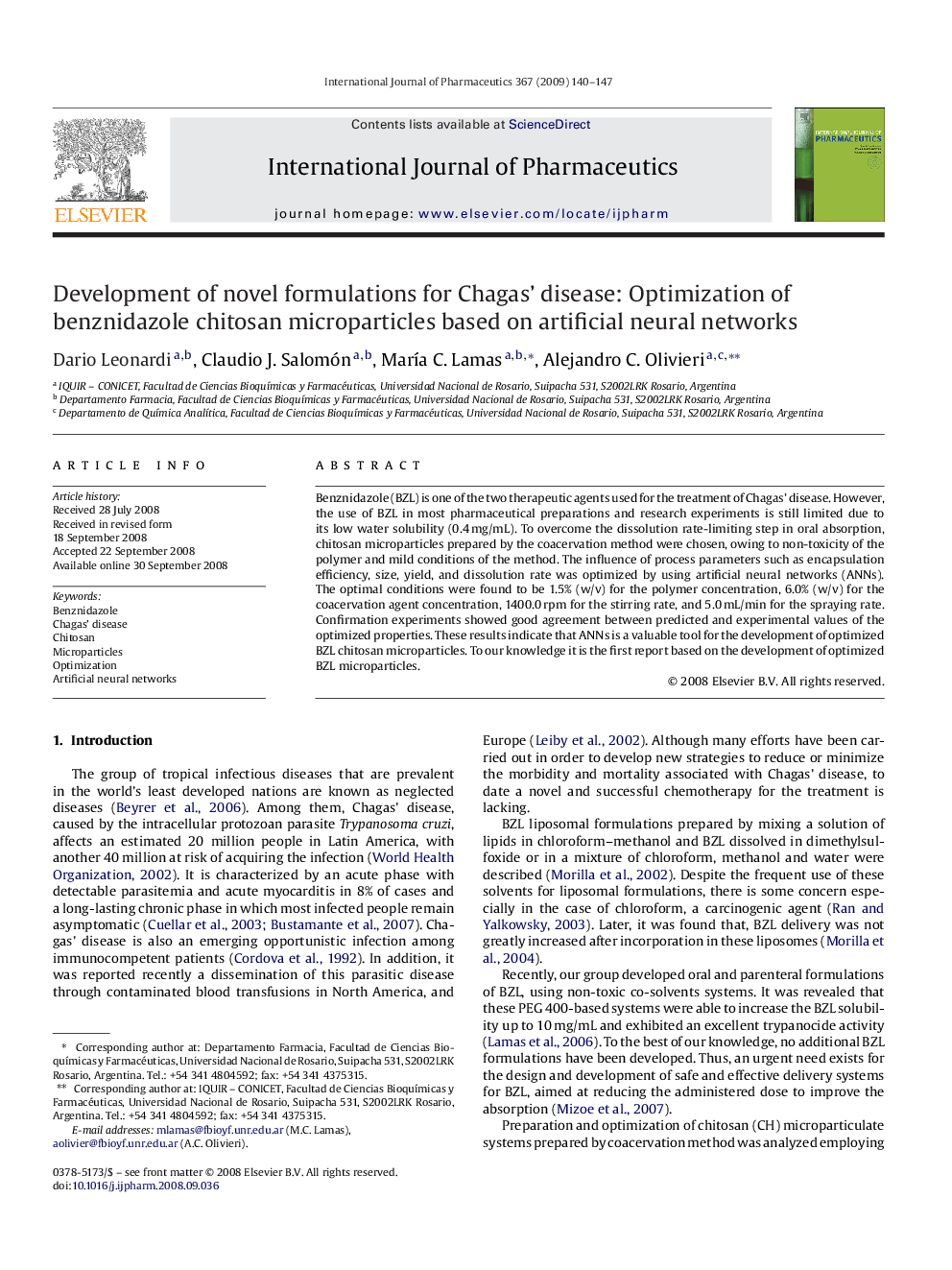| Article ID | Journal | Published Year | Pages | File Type |
|---|---|---|---|---|
| 2505019 | International Journal of Pharmaceutics | 2009 | 8 Pages |
Benznidazole (BZL) is one of the two therapeutic agents used for the treatment of Chagas’ disease. However, the use of BZL in most pharmaceutical preparations and research experiments is still limited due to its low water solubility (0.4 mg/mL). To overcome the dissolution rate-limiting step in oral absorption, chitosan microparticles prepared by the coacervation method were chosen, owing to non-toxicity of the polymer and mild conditions of the method. The influence of process parameters such as encapsulation efficiency, size, yield, and dissolution rate was optimized by using artificial neural networks (ANNs). The optimal conditions were found to be 1.5% (w/v) for the polymer concentration, 6.0% (w/v) for the coacervation agent concentration, 1400.0 rpm for the stirring rate, and 5.0 mL/min for the spraying rate. Confirmation experiments showed good agreement between predicted and experimental values of the optimized properties. These results indicate that ANNs is a valuable tool for the development of optimized BZL chitosan microparticles. To our knowledge it is the first report based on the development of optimized BZL microparticles.
